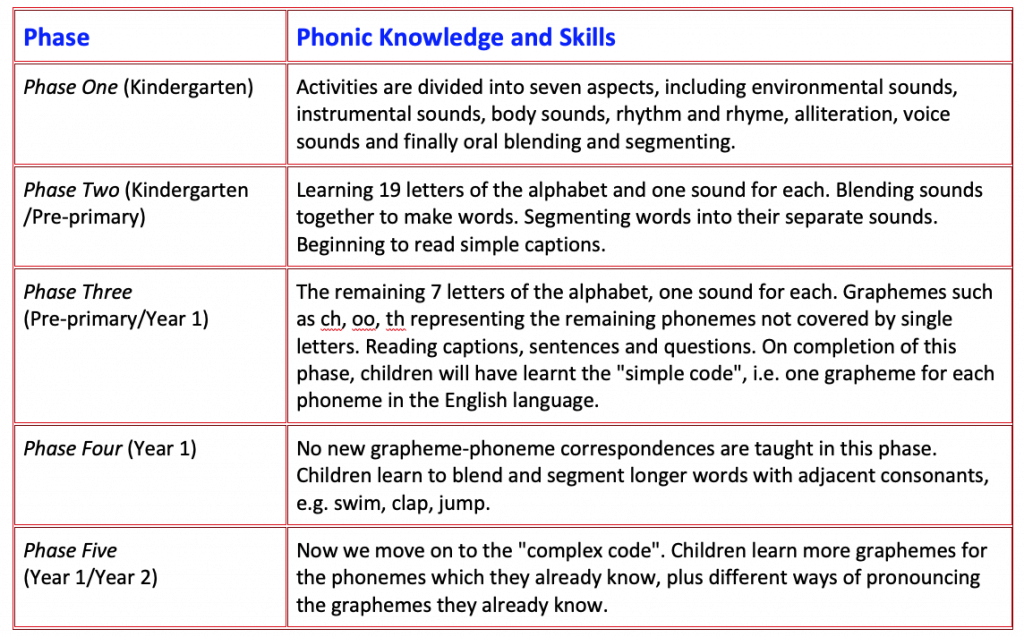Self expression & acting
Word Study

Word Study
Phonics instruction
Phonics is specialised instruction that enables beginning readers to crack a complex alphabet code, English. Cracking this code effectively frees up resources for comprehension. Evidence supports the implementation of explicit and systematic phonics instruction that focusses on developing a sound and deep understanding between the arrangement of the letters in a word (spelling) and its pronunciation (decoding).
Systematic phonics programs help students understand why they are learning the relationships between letters and sounds, teach in a logical and progressive sequence and support student application of phonic knowledge as they read and write. Phonics instruction is necessary but not sufficient. It is important to teach deep orthographic knowledge about morphemes and rules.
Teachers also draw on other programs, including Letters and Sounds, Jolly Phonics/Grammar and First Steps Spelling – all of which complement the Words Their Way program. At WLPS, a synthetic phonics program called Letter and Sounds is taught from Kindergarten to Year 2.
Letters and Sounds
At WLPS, a synthetic phonics program called Letter and Sounds is taught from Kindergarten to Year 2. This program builds children’s speaking and listening skills in conjunction with their phonemic understandings to prepare them for learning to read. It sets out a detailed and systematic program for teaching phonic skills for children.
 From Year 2 to Year 6 the chosen spelling program is Words Their Way, a teacher-directed, student-centred approach to vocabulary growth and spelling development, whereby students engage in a variety of sound, pattern and meaning activities, sorting pictures and words. This program caters for differentiated learning in the classroom.
From Year 2 to Year 6 the chosen spelling program is Words Their Way, a teacher-directed, student-centred approach to vocabulary growth and spelling development, whereby students engage in a variety of sound, pattern and meaning activities, sorting pictures and words. This program caters for differentiated learning in the classroom.
Word Study (Spelling)
Words Their Way is the spelling program of choice at WLPS and is used as a basis for word study sessions. Words Their Way enables teachers to diagnose, identify and document the spelling stages of students, group students with common needs, and tailor activities to improve their spelling knowledge.
The program is based on the explicit teaching of the ‘features’ of words through word sorts. It is not simply the learning or memorising of word spellings – it is the understanding of words and the ability to generalise. The underlying philosophy behind this is:
“if the average person can spell 48 000 words, then to memorise these, s/he would have to learn 10 words per day for approximately 13 years. If no learning was done at the weekends, it would take 18 years assuming none are forgotten and there is no need to relearn” (Bouffler, 1984).
For this reason, our teachers use the term ‘word study’ rather than ‘spelling’. Many aspects of the English language are woven into word study sessions, including grammar. The aim of word study at WLPS is to provide students with a comprehensive understanding of their list words so they are able to apply their knowledge of spelling to unknown words. Therefore, the focus of our word study sessions is on: hearing, reading, writing and saying sounds; long and short vowel sounds; base words and root words; rhyming words; letters; spelling strategies; prefixes and suffixes; syllabification; meaning; and parts of speech.
